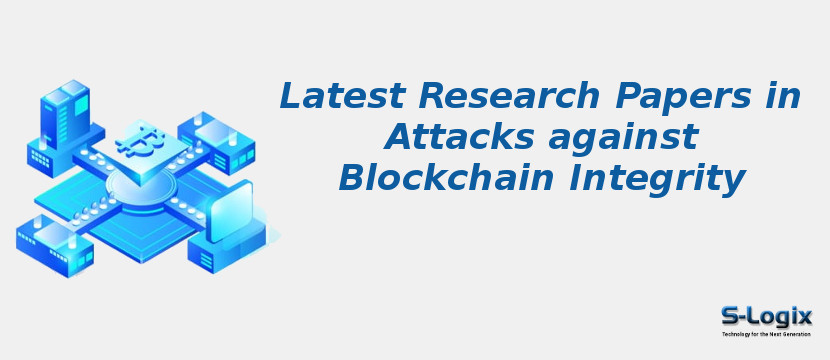Attacks against blockchain integrity focus on methods that compromise the trust, immutability, and reliability of blockchain systems, undermining their core security promises. Research in this area explores various threats such as double-spending, majority (51%) attacks, selfish mining, Sybil attacks, and time-stamping manipulations, all of which exploit vulnerabilities in consensus mechanisms or network design. These studies also analyze advanced threats like eclipse attacks, smart contract exploits, and cross-chain vulnerabilities that target interoperability frameworks. The aim of such research is to identify how adversaries can disrupt consensus, alter transaction histories, or manipulate network participation, thereby weakening the integrity of blockchain systems. By understanding these attacks, researchers propose countermeasures such as enhanced consensus protocols, cryptographic safeguards, anomaly detection models, and governance policies to preserve the transparency, reliability, and security of blockchain infrastructures.
